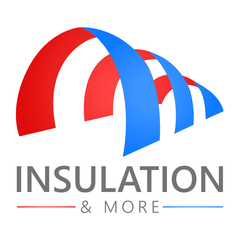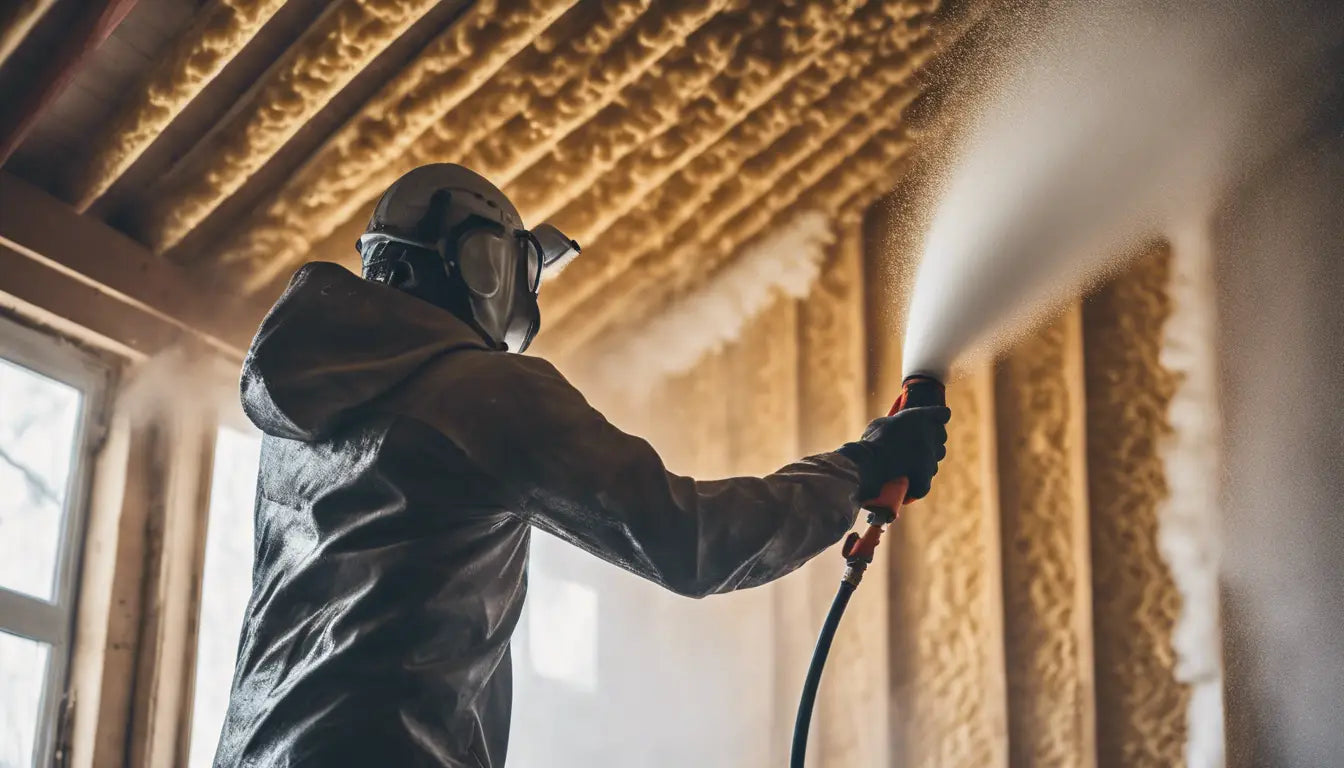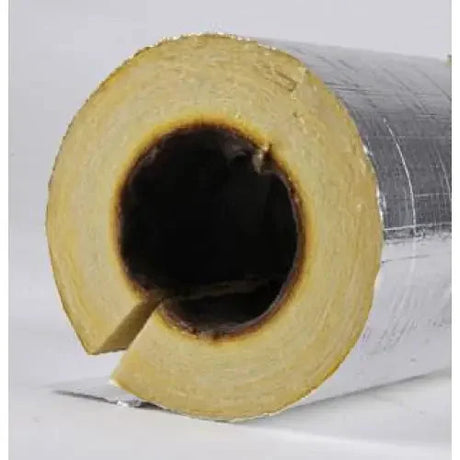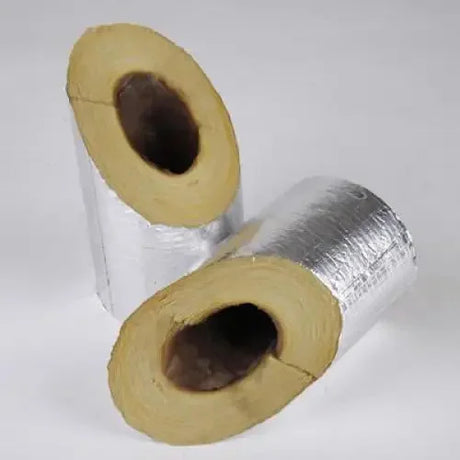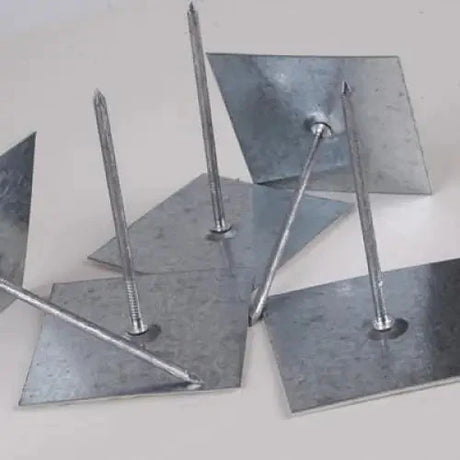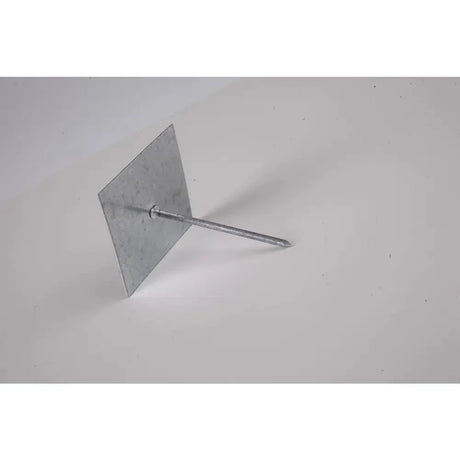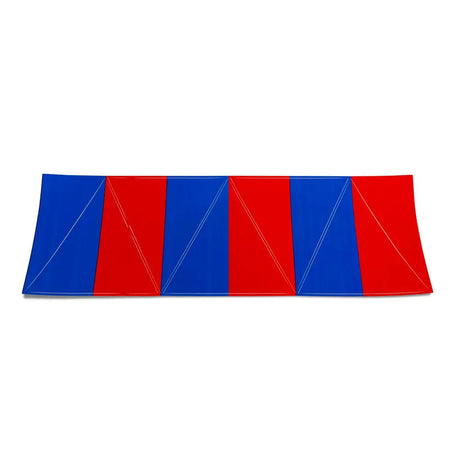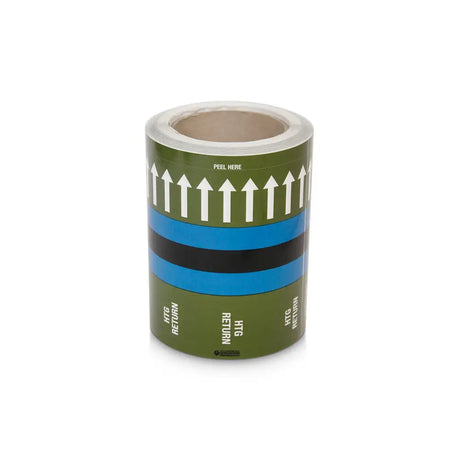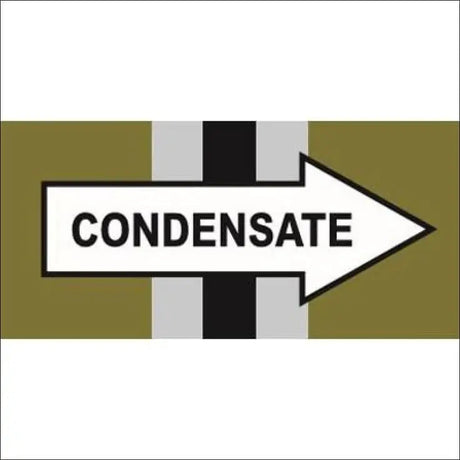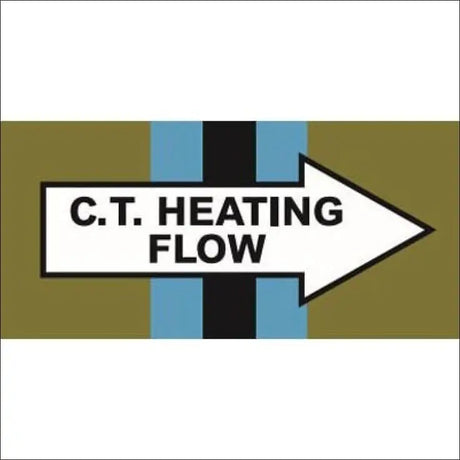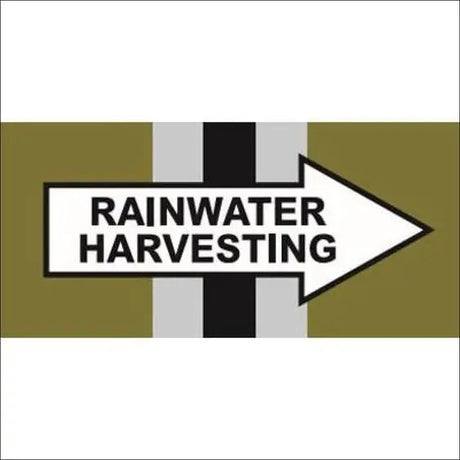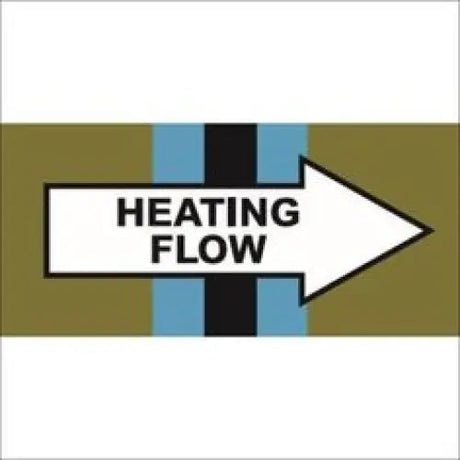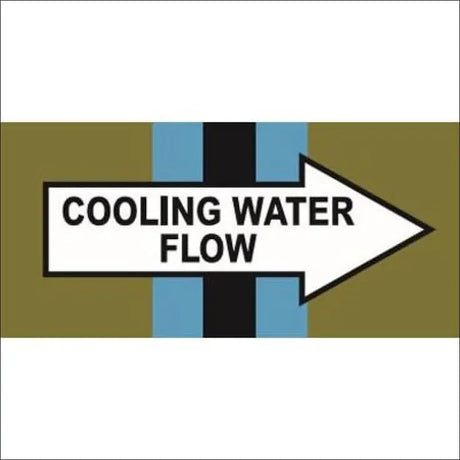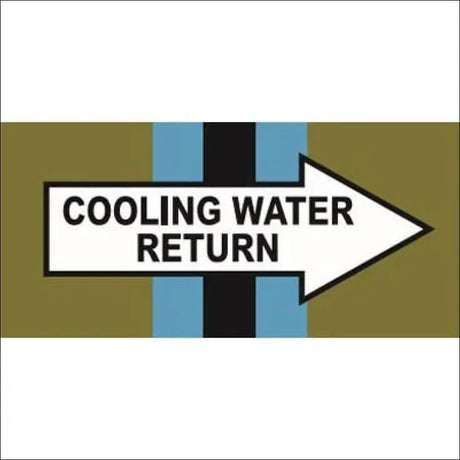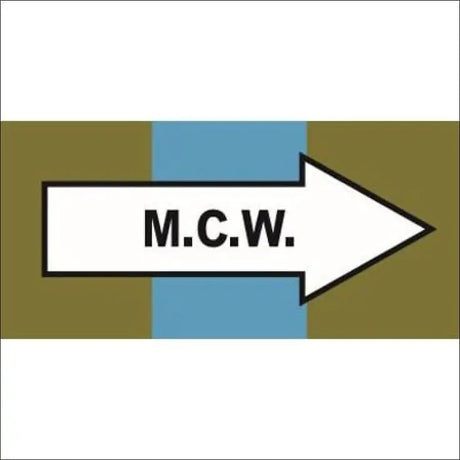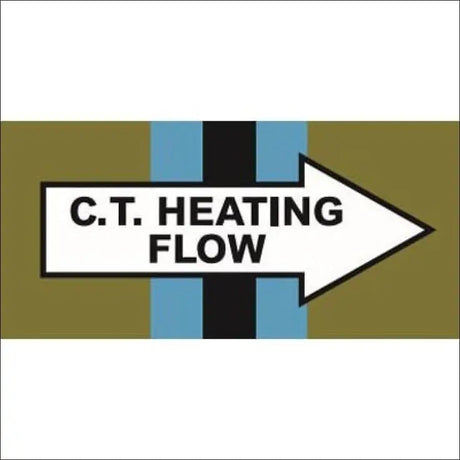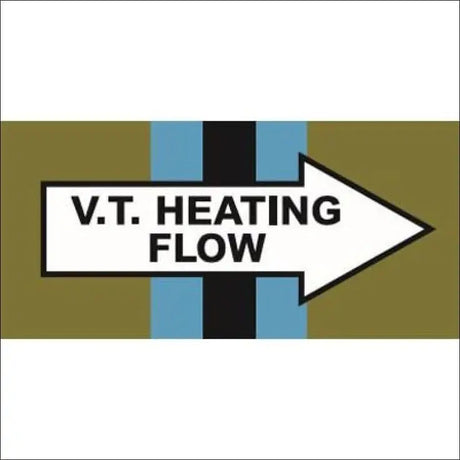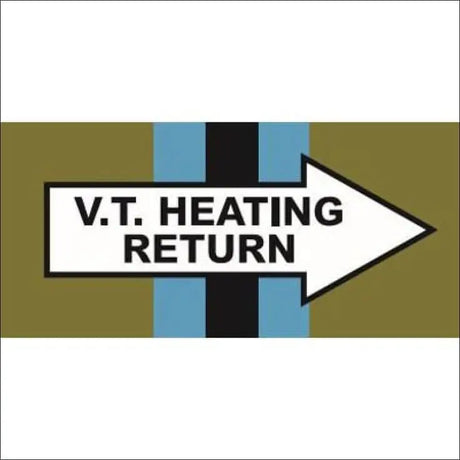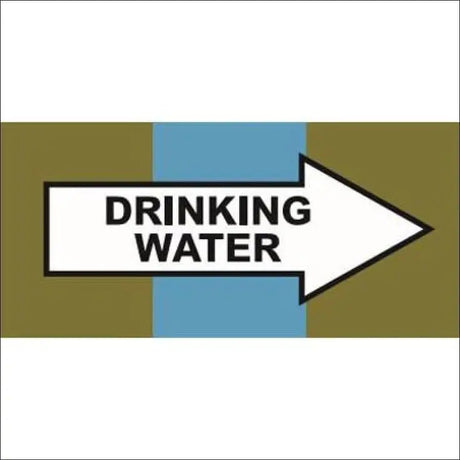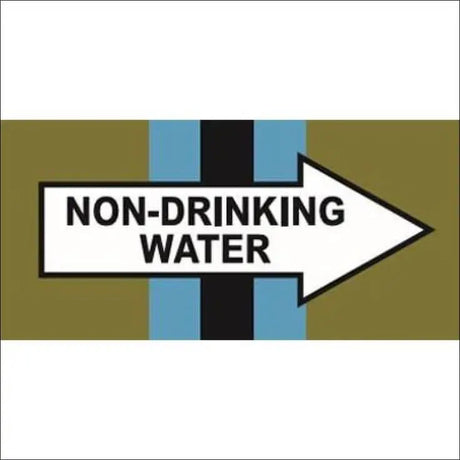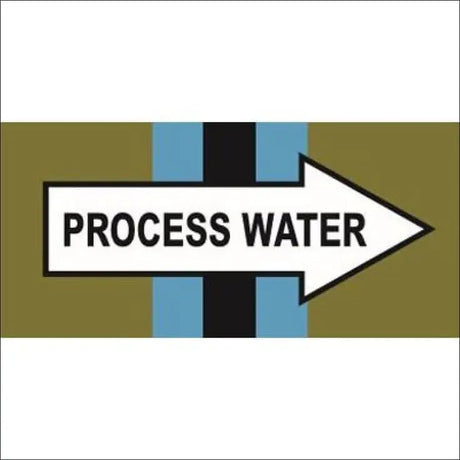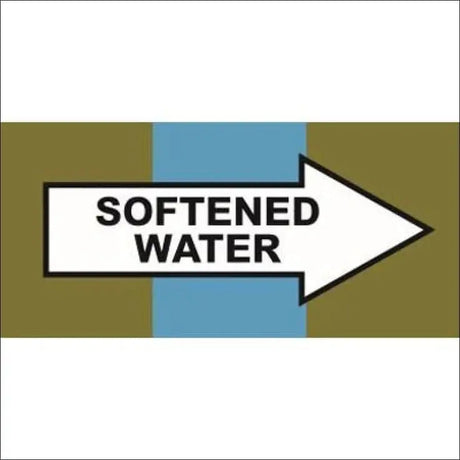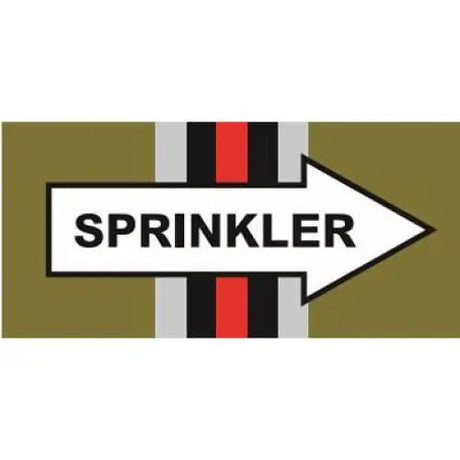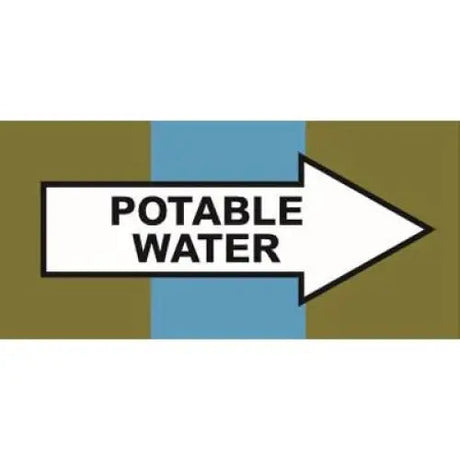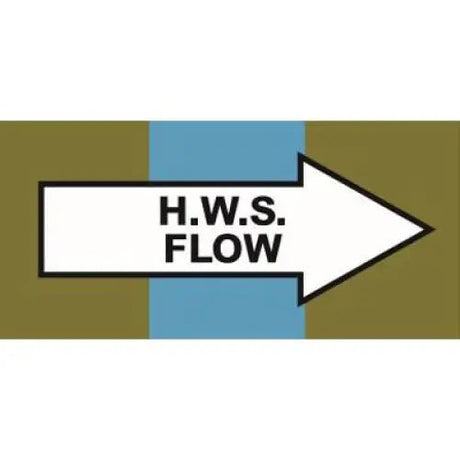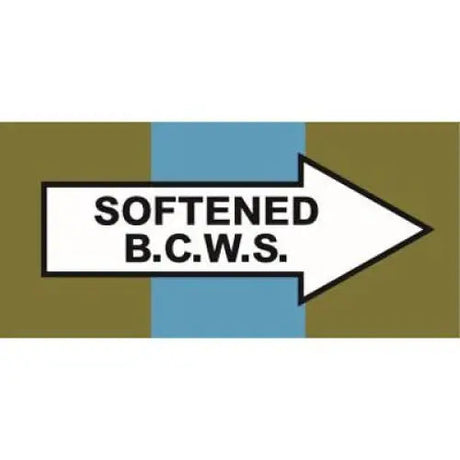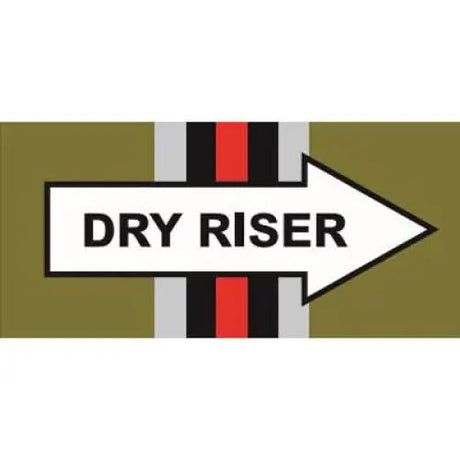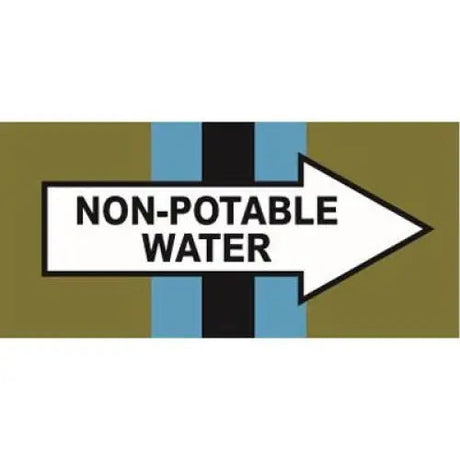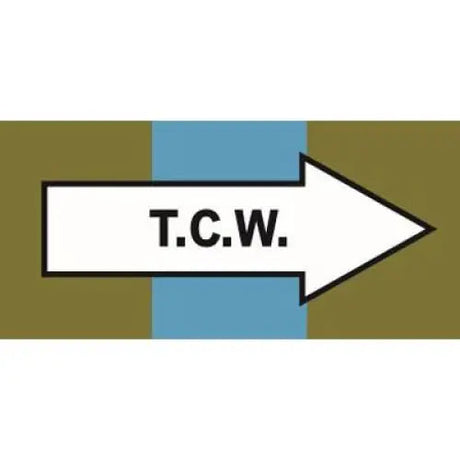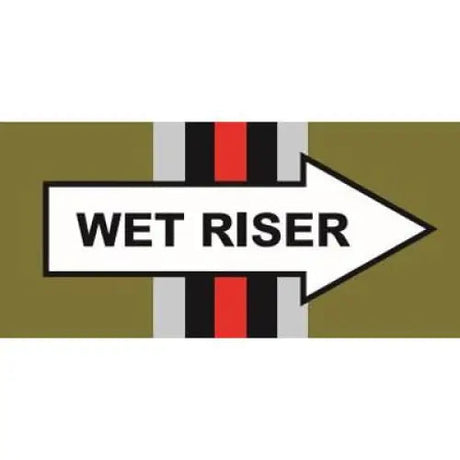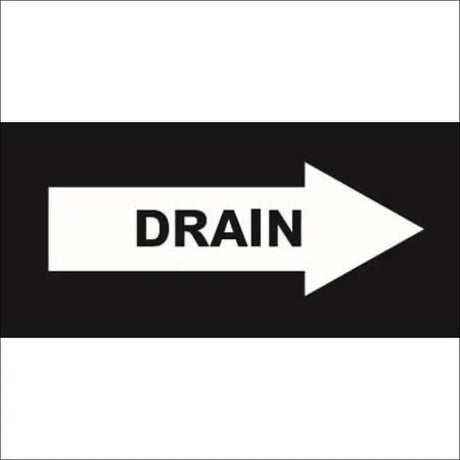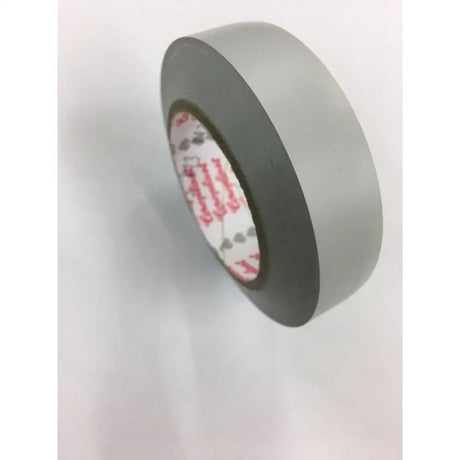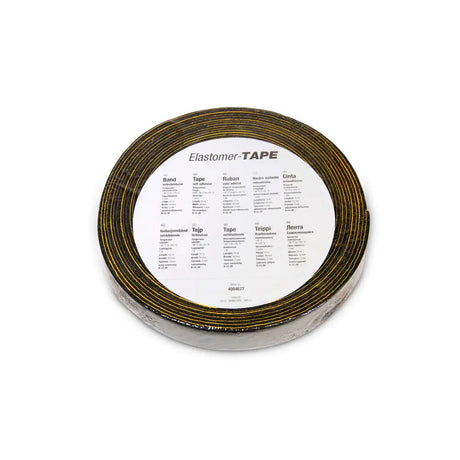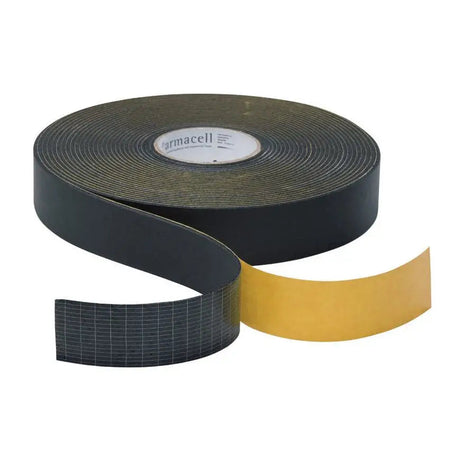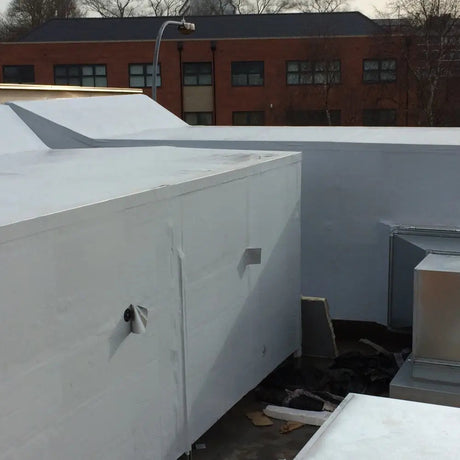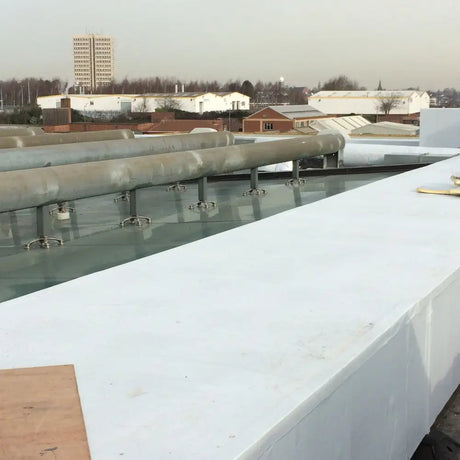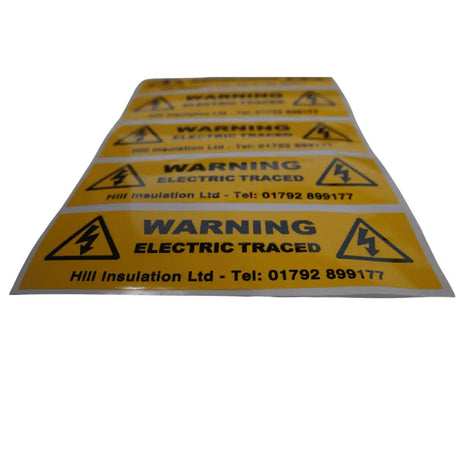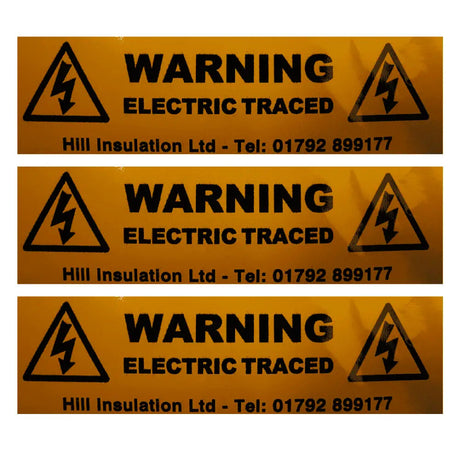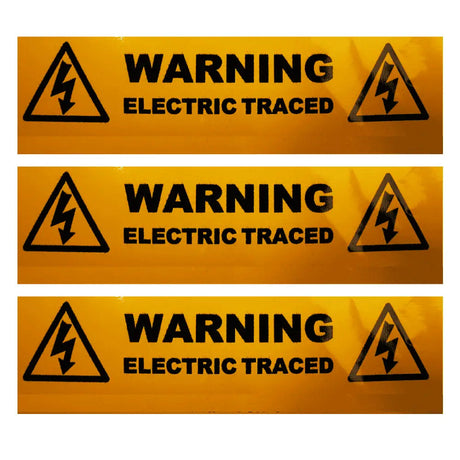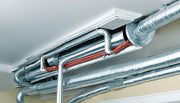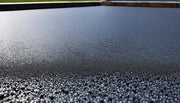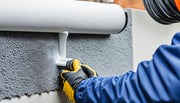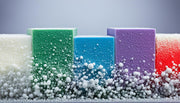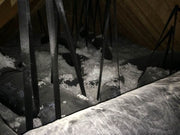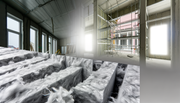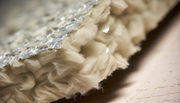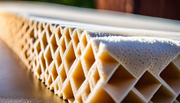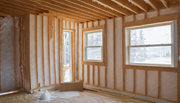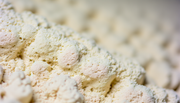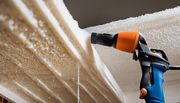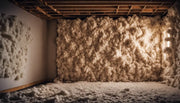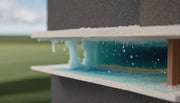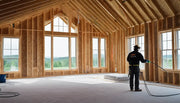Polyurethane, a versatile material widely used in the construction industry, plays a crucial role in various applications. From insulation to sealants and coatings, polyurethane products offer several benefits such as strength, durability, and versatility. Polyurethane insulation, in particular, has become a popular choice for improving energy efficiency and reducing greenhouse gas emissions in homes and buildings. Let's explore the uses, advantages, and impacts of polyurethane insulation in construction.
Key Takeaways:
- Polyurethane insulation is a versatile material widely used in the construction industry.
- It offers several benefits including strength, durability, and versatility.
- Polyurethane insulation plays a major role in improving energy efficiency and reducing greenhouse gas emissions.
- It is used in various construction applications such as insulation materials, sealants, adhesives, and coatings.
- Polyurethane insulation is also used in furniture, bedding, carpet underlay, and composite wood products.
Polyurethane Insulation Benefits and Advantages
Polyurethane insulation offers numerous benefits and advantages. Its properties make it an excellent choice for insulation in various construction applications.
Thermal Insulation
Polyurethane insulation provides excellent thermal insulation properties. It efficiently prevents heat transfer, reducing energy consumption and creating a comfortable indoor environment.
Sound Insulation
In addition to thermal insulation, polyurethane insulation also has good sound insulation properties. It helps minimize noise pollution, creating a quieter and more peaceful living or working space.
Lightweight and Durable
Polyurethane insulation is lightweight but strong and durable. It is suitable for different construction applications without adding excessive weight to the structure.
Moisture and Mold Resistance
One of the significant advantages of polyurethane insulation is its resistance to moisture and mold growth. This property helps ensure a hygienic and healthy environment, preventing the growth of harmful mold and maintaining excellent indoor air quality.
Versatile Installation
Polyurethane insulation can be easily installed in various shapes and forms to fit specific construction needs. It can be sprayed, poured, or applied as rigid foam boards, offering flexibility in installation methods.
| Benefits and Advantages of Polyurethane Insulation |
|---|
| Thermal Insulation |
| Sound Insulation |
| Lightweight and Durable |
| Moisture and Mold Resistance |
| Versatile Installation |
Polyurethane in Building Construction
At Insulation & More, we understand the importance of using high-quality materials in construction projects. That's why we advocate for the extensive use of polyurethane in building construction and commercial insulation. Polyurethane offers a multitude of applications that contribute to the efficiency and durability of structures.
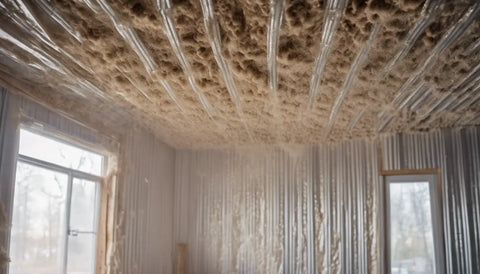
One of the common uses of polyurethane in construction is as insulation material. Polyurethane foam is widely applied in roofs, walls, and floors, providing exceptional thermal insulation. It effectively reduces heat loss or gain, resulting in improved energy efficiency. The use of polyurethane foam as insulation helps to maintain consistent temperatures inside buildings, reducing the need for excessive heating or cooling.
Polyurethane foam is also instrumental in air sealing, preventing air leakage in construction. By sealing gaps and joints, it enhances indoor air quality and reduces energy wastage. Proper air sealing ensures that the conditioned air stays inside the building, promoting energy efficiency and reducing utility costs.
In addition to insulation, polyurethane finds its way into various construction products, including adhesives, sealants, coatings, and binders for composite wood products. These polyurethane-based products offer exceptional performance in terms of strength, durability, and resilience. They are designed to withstand the rigors of construction, providing long-lasting bonds and protection.
To illustrate the diverse applications of polyurethane in construction, take a look at the following table:
| Application | Product | Benefits |
|---|---|---|
| Insulation | Polyurethane foam | - Excellent thermal insulation - Energy efficiency - Reduced heat loss or gain |
| Air sealing | Polyurethane foam | - Prevention of air leakage - Improved indoor air quality |
| Adhesives | Polyurethane-based | - Strong and durable bonds - Resistance to impacts and weathering |
| Sealants | Polyurethane-based | - Waterproofing and weatherproofing - Flexibility and durability |
| Coatings | Polyurethane-based | - Protection against abrasion and chemicals - Aesthetic enhancement |
| Binders for composite wood products | Polyurethane-based | - Strong bonding capability - Moisture resistance - Dimensional stability |
As you can see, polyurethane offers versatility and performance in various construction applications, ensuring the longevity and resilience of the built environment. Its impact in the construction industry is undeniable, revolutionizing the way we build and enhance structures.
By incorporating polyurethane products into your construction projects, you can achieve superior insulation, air sealing, and overall performance. At Insulation & More, we are proud to offer high-quality polyurethane construction products that meet industry standards and provide outstanding results for your building needs.
Polyurethane Coatings in Construction
Polyurethane coatings play a crucial role in the construction industry, offering both protection and aesthetic enhancement to various materials. These coatings are highly sought after for their durability and resistance to abrasion, chemicals, UV radiation, and weathering. Whether applied to surfaces such as concrete, metal, wood, or plastic, polyurethane coatings provide a robust barrier that prolongs the lifespan of construction materials while improving their appearance.
When it comes to construction projects, polyurethane coatings offer versatility as they can be applied as topcoats, primers, or clear finishes, depending on the specific requirements. This makes them suitable for a wide range of applications, from protecting outdoor structures to enhancing the look and durability of interior surfaces.
Building exteriors benefit greatly from polyurethane coatings as they provide excellent protection against the elements, preventing damage caused by moisture, sunlight, chemicals, and physical wear. These coatings form a barrier that shields materials from deterioration, extending their lifespan and reducing maintenance costs.
Additionally, polyurethane coatings enhance the aesthetic appeal of construction materials. They can be customized to achieve different finishes, from glossy to matte, allowing architects and designers to create visually pleasing surfaces. This makes them a popular choice for both residential and commercial projects, where aesthetics play a significant role in the overall design.
Advantages of Polyurethane Coatings in Construction:
- Excellent resistance to abrasion, chemicals, UV radiation, and weathering
- Durable protection for construction materials
- Enhanced aesthetic appearance
- Versatile application as topcoats, primers, or clear finishes
- Extended lifespan and reduced maintenance costs
- Customizable finishes for different design preferences
Overall, polyurethane coatings offer a reliable solution for protecting and enhancing construction materials. Their blend of durability, resistance, and aesthetic appeal makes them a popular choice in the construction industry.
| Benefits of Polyurethane Coatings | Applications |
|---|---|
| Excellent resistance to abrasion, chemicals, UV radiation, and weathering | Exterior surfaces such as facades, roofs, and outdoor structures |
| Durable protection for construction materials | Metal surfaces, wood finishes, and plastic coatings |
| Enhanced aesthetic appearance | Interior surfaces, decorative finishes, and architectural elements |
| Versatile application as topcoats, primers, or clear finishes | Various construction materials and substrates |
| Extended lifespan and reduced maintenance costs | Building exteriors and high-traffic areas |
| Customizable finishes for different design preferences | Residential, commercial, and industrial projects |
Having discussed the advantages and applications of polyurethane coatings in construction, it is evident that they are a valuable asset in building projects. With their protective properties and ability to enhance the appearance of construction materials, polyurethane coatings continue to be a trusted choice for architects, builders, and designers alike.
Polyurethane Sealants in Construction
In construction, the importance of strong and durable seals cannot be overstated. That's where polyurethane sealants come in. These versatile sealants are widely used in the industry for sealing joints and gaps in various building materials. Whether it's window and door installations, concrete joint sealing, or general construction caulking, polyurethane sealants offer exceptional adhesion, flexibility, and durability.
One of the key advantages of polyurethane sealants is their ability to create long-lasting and watertight seals. They provide a reliable barrier against moisture, chemicals, and weathering, ensuring that your construction project remains protected for years to come. Whether you're sealing gaps in interior structures or exterior applications, polyurethane sealants offer the resistance and performance necessary for a wide range of sealing needs.
The Benefits of Polyurethane Sealants
Polyurethane sealants offer a multitude of benefits that make them an ideal choice for construction projects. Here are some key advantages:
- Strong Adhesion: Polyurethane sealants bond effectively to various building materials, ensuring a secure and long-lasting seal.
- Flexibility: These sealants remain flexible even after curing, accommodating movement and preventing cracks or breaks in the seal.
- Durability: With excellent resistance to moisture, chemicals, weathering, and aging, polyurethane sealants retain their effectiveness over time.
- Versatility: Polyurethane sealants can be used for both interior and exterior sealing applications, offering a wide range of construction possibilities.
Applications of Polyurethane Sealants
Thanks to their impressive properties, polyurethane sealants find extensive use in various construction applications. Here are a few common examples:
- Window and Door Installations: Polyurethane sealants provide a reliable seal around windows and doors, preventing air and water leakage.
- Concrete Joint Sealing: These sealants ensure watertight seals in concrete joints, protecting against moisture infiltration and potential damage.
- General Construction Caulking: Polyurethane sealants are used for caulking gaps and joints in a wide range of construction materials, creating a secure and professional finish.
Polyurethane sealants offer the strength, flexibility, and durability needed for a wide range of sealing applications in the construction industry. From ensuring airtight windows to protecting concrete structures, these sealants play a vital role in maintaining the integrity and longevity of construction projects.
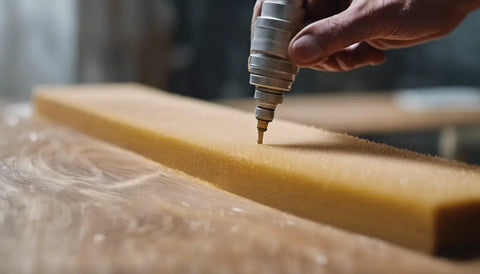
Polyurethane Applications in Composite Wood Products
In addition to its role in insulation and construction, polyurethane also plays a crucial role in composite wood products. Polyurethane-based binders are extensively used in the production of wood-based panels, providing exceptional bonding strength and durability. These binders act as a permanent adhesive, effectively gluing organic materials together to create strong and reliable composite wood panels.
Common applications of polyurethane binders in the manufacturing of composite wood products include oriented strand board (OSB), medium-density fiberboard (MDF), and laminated-veneer lumber. These materials are widely used in the construction industry for their strength, dimensional stability, and moisture resistance. The use of polyurethane binders ensures the structural integrity of composite wood products, making them suitable for various construction applications.
Applications of Polyurethane Binders in Composite Wood Products:
- 1. Oriented Strand Board (OSB): OSB is a type of composite wood panel made by combining strands of wood with a polyurethane binder. It offers strength and dimensional stability, making it suitable for structural applications such as roof sheathing, wall panels, and flooring underlayment.
- 2. Medium-Density Fiberboard (MDF): MDF is made by breaking down hardwood or softwood residuals into wood fibers and combining them with a polyurethane binder. It is widely used in furniture manufacturing, cabinetry, and decorative molding due to its smooth surface and versatility.
- 3. Laminated-Veneer Lumber (LVL): LVL is created by bonding multiple layers of thin wood veneers with a polyurethane binder. It is commonly used in structural applications such as beams, headers, and stair stringers, providing strength and load-bearing capabilities.
- 4. Other Wood-Based Products: Polyurethane binders are also utilized in the production of various other wood-based products such as particleboard, waferboard, and plywood, further expanding their applications in the construction industry.
Overall, polyurethane binders play a vital role in the manufacturing of composite wood products, providing exceptional bonding strength, moisture resistance, and dimensional stability. Their use ensures the production of robust and durable wood-based panels that meet the demanding requirements of the construction industry.
Polyurethane Elastomers in Construction
Polyurethane elastomers are essential materials in the construction industry, offering a wide range of properties and applications. These rubber-like elastomers provide flexibility, durability, and exceptional resistance to wear, tear, and abrasion.
One of the key advantages of polyurethane elastomers is their ability to be molded into different shapes and forms, making them highly versatile in construction applications. They can be customized to fit specific needs, ensuring optimal performance in various environments.
Polyurethane elastomers find extensive use in construction applications such as gaskets, seals, bearings, conveyor belts, and vibration damping components. Their excellent mechanical properties allow them to withstand demanding conditions and harsh environments.
Whether it's sealing gaps, providing cushioning, or reducing vibrations, polyurethane elastomers offer exceptional performance and reliability in a wide range of construction applications.
These elastomers are widely recognized for their ability to withstand extreme temperatures, chemicals, and weather conditions, ensuring long-lasting durability. They are also known for their resistance to oil and grease, making them suitable for use in various construction environments.
With the use of polyurethane elastomers, construction projects can benefit from enhanced performance, extended lifespan, and improved efficiency. Whether it's preventing leaks, reducing friction, or absorbing vibrations, these elastomers play a vital role in ensuring the durability, reliability, and safety of construction applications.
Spray Polyurethane Foam Insulation in Detail
Spray polyurethane foam (SPF) insulation is a type of polyurethane insulation that is applied in a liquid form and expands to form a solid foam. It is commonly used for insulation and air-sealing purposes in construction. SPF insulation offers superior thermal insulation properties, reducing energy loss and improving energy efficiency. It provides excellent air-sealing capabilities, preventing air leakage and improving indoor air quality. SPF insulation is also durable, lightweight, and resistant to moisture, mold, and pests. It can be sprayed onto any surface, conforming to irregular shapes and providing seamless coverage.
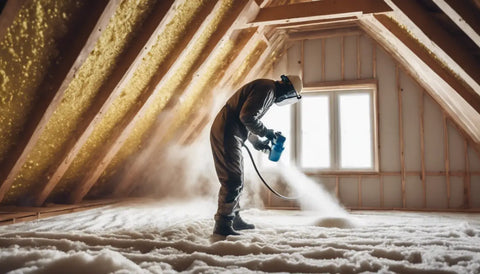
SPF insulation is applied using specialized equipment that sprays a mixture of polyol resin and isocyanate onto the desired area. The two components react with each other, creating a foam that adheres to the surface and expands to fill gaps and cavities. The foam is typically applied in multiple layers to achieve the desired insulation thickness. Once applied, the foam cures and hardens, creating a solid barrier against heat transfer and air infiltration.
The versatility of SPF insulation allows it to be used in various construction applications. It can be applied to both new and existing buildings, making it suitable for retrofits and renovations. SPF insulation can be used in roofs, walls, attics, crawl spaces, and basements, providing effective insulation and air sealing in these areas. It can also be used to insulate and seal ductwork, pipes, and other mechanical installations to prevent energy loss.
In addition to its thermal and air-sealing properties, SPF insulation also offers several other benefits. It acts as a barrier against moisture, preventing water infiltration and reducing the risk of mold growth. The closed-cell structure of SPF insulation provides added structural strength to the building, enhancing its durability and resistance to wind and impact. SPF insulation can also contribute to noise reduction, creating a quieter and more comfortable indoor environment.
| Benefit | Description |
|---|---|
| Superior Thermal Insulation | SPF provides excellent thermal insulation, reducing energy loss and improving energy efficiency. |
| Air-Sealing Capabilities | It offers exceptional air-sealing, preventing air leakage which improves indoor air quality. |
| Durability | SPF is known for its durability and longevity. |
| Lightweight | The foam is light, which makes it easy to apply without adding significant weight to structures. |
| Moisture Resistance | SPF is resistant to moisture, which helps in preventing water infiltration. |
| Mold and Pest Resistance | Its composition makes it resistant to mold growth and pests. |
| Versatility | Can be applied to various surfaces and conforms to irregular shapes, providing seamless coverage. |
| Suitability for Diverse Applications | It can be used in new constructions, renovations, roofs, walls, attics, crawl spaces, and basements. |
| Energy Efficiency | By reducing energy loss, SPF contributes to overall energy efficiency in buildings. |
| Structural Strength | The closed-cell structure of SPF adds strength to buildings, enhancing durability and resistance to external impacts. |
| Noise Reduction | SPF insulation can contribute to a quieter indoor environment. |
When considering SPF insulation, it is important to hire a professional installer with experience in handling and applying the material. Proper installation is crucial for achieving optimal insulation performance and ensuring the safety of the occupants. Qualified installers are trained to handle the chemicals involved in the application process, ensuring the correct mixture ratio and proper ventilation to minimize any potential health risks.
In summary, spray polyurethane foam insulation is a highly effective and versatile solution for insulation and air sealing in construction. Its superior thermal performance, air-sealing capabilities, moisture resistance, and durability make it a popular choice among builders and homeowners. When installed by a qualified professional, SPF insulation can significantly improve energy efficiency, indoor comfort, and the overall performance of a building.
Considerations and Drawbacks of Spray Foam Insulation
While spray foam insulation offers numerous benefits, it's important to consider some potential drawbacks before making a decision. Like any construction material, spray foam insulation has its considerations and limitations. Here are a few points to keep in mind:
- Higher Cost: Compared to other types of insulation, spray foam can be more expensive. The upfront cost may be higher, but it's important to consider the long-term energy savings and potential reduction in utility bills.
- Professional Installation: Spray foam insulation requires professional installation. It is a specialized process that requires skill and knowledge to ensure proper application and effectiveness. Hiring trained and certified installers is essential to achieve optimal results.
- Difficult Removal: Once installed, spray foam insulation is challenging to remove. If there is a need to replace or repair the insulation in the future, it can be a time-consuming and costly process.
- Reduced Ventilation: Proper ventilation is crucial when using spray foam insulation. Insufficient ventilation can lead to increased humidity and dampness, which may result in decay in roof timbers and other structural issues.
- Harmful Fumes: During the installation process, harmful fumes and volatile organic compounds (VOCs) can be emitted. It is important to ensure proper ventilation and follow safety guidelines to minimize exposure to these substances.
- Compatibility: Spray foam insulation may not be suitable for all types of buildings or construction projects. Certain building codes and regulations restrict the use of spray foam insulation in specific applications. It's important to consult with professionals and be aware of any restrictions before choosing this insulation option.
Considering these factors and consulting with experts will help you make an informed decision about whether spray foam insulation is the right choice for your construction project.
Considerations and Drawbacks of Spray Foam Insulation
| Considerations | Drawbacks |
|---|---|
| Higher Cost | More expensive compared to other insulation options |
| Professional Installation | Requires trained and certified installers |
| Difficult Removal | Challenging and costly to remove once installed |
| Reduced Ventilation | Potential risks of humidity, dampness, and decay in roof timbers |
| Harmful Fumes | Emission of harmful fumes and volatile organic compounds (VOCs) during installation |
| Compatibility | May not be suitable for all types of buildings or construction projects |
Considering these factors and consulting with experts will help you make an informed decision about whether spray foam insulation is the right choice for your construction project.
Safety and Environmental Impact of Spray Foam Insulation
Spray foam insulation is an effective solution for insulating homes and buildings, but it is crucial to consider its safety and environmental impact. During installation, harmful fumes may be released, emphasizing the need for professional installers who follow health and safety guidelines. It is important to ensure proper ventilation to prevent condensation and maintain a healthy indoor environment. Additionally, it is not recommended to use spray foam insulation in listed buildings or houses with thatched roofs.
When installed correctly, however, spray foam insulation does not emit harmful compounds and is considered safe for occupants. It provides an airtight seal, enhancing energy efficiency and reducing utility costs. Moreover, spray foam insulation contributes to reducing the environmental impact by minimizing heat loss, thus lowering greenhouse gas emissions. By creating a thermally efficient and well-insulated space, spray foam insulation helps to achieve sustainable construction practices.
Environmental Impact Comparison Table:
| Environmental Impact Factors | Conventional Insulation | Spray Foam Insulation |
|---|---|---|
| Energy Efficiency | Provides moderate energy savings | Offers exceptional energy savings |
| Greenhouse Gas Emissions | May contribute to higher emissions | Reduces greenhouse gas emissions |
| Environmental Resources | Requires a significant amount of raw materials | Utilizes fewer raw materials |
| Longevity | May require replacement or maintenance over time | Durable and long-lasting |
| Installation Waste | May generate more waste during installation | Produces minimal waste |
As the table illustrates, spray foam insulation offers outstanding energy efficiency and reduces greenhouse gas emissions when compared to conventional insulation. It also requires fewer raw materials, contributes to long-term durability, and produces minimal installation waste. These factors collectively contribute to a more sustainable and environmentally friendly construction industry.
Impact on Property Value and Considerations
Spray foam insulation can have a significant impact on the value of a property, especially during property transactions. The presence of spray foam insulation may cause surveyors to assess the value differently and may even lead to the request for additional specialist reports.
In some cases, the installation of spray foam insulation can render a property un-mortgageable. This is a consideration that homeowners and potential buyers should keep in mind when weighing the benefits of spray foam insulation.
However, it's important to note that the spray foam industry is actively working with lenders and valuers to address these issues. They are striving to find solutions that allow for accurate property valuations and mortgage eligibility.
For homeowners who have already installed spray foam insulation or those considering it, it is recommended to keep all relevant documentation provided by the installer. This documentation can help to demonstrate compliance with regulations and address any concerns related to property valuation.
Key Considerations
- Surveyors may assess the value differently with spray foam insulation present.
- Additional specialist reports may be required.
- Spray foam insulation can render a property un-mortgageable in some cases.
- The spray foam industry is working with lenders and valuers to address these issues.
- Keeping relevant documentation provided by the installer is recommended to address any concerns related to property valuation.
Finding a Professional Spray Foam Installation Expert
When considering spray foam installation for insulation purposes, it is crucial to find a professional and reputable installer. The installation process requires expertise, and qualified installers are trained, certified, and knowledgeable about the proper techniques and safety protocols involved. To ensure you choose the right installer, look for certifications from reputable trade bodies such as the British Board of Agrément (BBA).
The BBA certification guarantees that the installers have undergone rigorous training and have the competence to deliver high-quality spray foam installation. Additionally, it is important to select installers who comply with building regulations and adhere to health and safety rules to ensure a safe and effective installation process.
Conducting thorough research is essential in finding a qualified and reliable spray foam installation expert. Look for customer reviews and testimonials from previous clients to evaluate their work and customer satisfaction. Obtaining multiple quotes will enable you to compare prices and services, helping you make an informed decision.
By partnering with a professional spray foam installation expert, you can have peace of mind knowing that your insulation needs will be met with the highest standards of workmanship and quality.
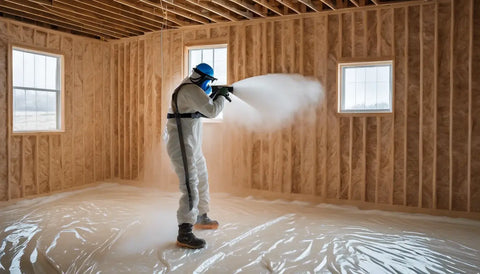
Conclusion
Polyurethane insulation, including spray foam insulation, plays a significant role in the construction industry. Its versatility, durability, and energy-efficient properties make it a valuable choice for insulation, air-sealing, and other construction applications.
While there are considerations and drawbacks to be aware of, careful planning and choosing reputable installers can ensure successful and safe implementation of polyurethane insulation in construction projects. Whether it is used in buildings, furniture, or other construction materials, polyurethane continues to revolutionize the construction industry in the UK.
With its ability to provide excellent thermal insulation, prevent heat transfer, and reduce energy consumption, polyurethane insulation is an essential component in creating energy-efficient buildings. Additionally, its resistance to moisture and mold growth contributes to a healthier indoor environment. From roofs and walls to furniture and bedding, polyurethane insulation offers a wide range of benefits, helping to improve sustainability, reduce operational costs, and enhance the overall comfort of living and working spaces.
FAQ
What is polyurethane insulation?
Polyurethane insulation is a type of insulation material that is made from polyurethane foam. It is used in construction to provide thermal insulation and improve energy efficiency in buildings.
What are the benefits of using polyurethane insulation?
Polyurethane insulation offers several benefits, including excellent thermal insulation properties, sound insulation capabilities, lightweight yet durable construction, resistance to moisture and mold growth, and versatility in installation.
How is polyurethane used in building construction?
Polyurethane is used in various construction applications, including insulation for roofs, walls, and floors, as well as in adhesives, sealants, coatings, and binders for composite wood products. It provides strength, durability, and energy efficiency to building materials.
What are polyurethane coatings used for in construction?
Polyurethane coatings are used in construction to provide protective and decorative finishes for surfaces such as concrete, metal, wood, and plastic. They offer resistance to abrasion, chemicals, UV radiation, and weathering.
What are polyurethane sealants used for in construction?
Polyurethane sealants are used in construction to seal joints and gaps in various building materials. They offer excellent adhesion, flexibility, and durability, ensuring watertight seals that resist moisture, chemicals, weathering, and aging.
How is polyurethane foam used in furniture and bedding?
Polyurethane foam is used in furniture and bedding for cushioning and comfort purposes. It provides support, durability, and resistance to wear and tear. It also meets fire safety standards and building code requirements for flame resistance.
What are polyurethane binders used for in composite wood products?
Polyurethane binders are used to glue organic materials together in the production of composite wood products like oriented strand board (OSB) and medium-density fiberboard (MDF). They provide excellent bonding strength, moisture resistance, and dimensional stability.
What are polyurethane elastomers used for in construction?
Polyurethane elastomers are used in construction for applications such as gaskets, seals, bearings, conveyor belts, and vibration damping components. They offer flexibility, durability, and resistance to wear, tear, and abrasion in demanding construction environments.
What is spray polyurethane foam insulation used for?
Spray polyurethane foam insulation is used for insulation and air-sealing purposes in construction. It provides superior thermal insulation properties, improves energy efficiency, and offers excellent air-sealing capabilities. It is lightweight, durable, and resistant to moisture, mold, and pests.
What are the considerations and drawbacks of using spray foam insulation?
Considerations for spray foam insulation include higher cost, professional installation requirements, and potential challenges with removal. Drawbacks include reduced ventilation, which can lead to humidity and dampness issues, as well as the emission of harmful fumes during installation.
What are the safety and environmental impacts of spray foam insulation?
Safety precautions should be taken during spray foam insulation installation to avoid harmful fumes. Adequate ventilation is crucial to prevent condensation and maintain a healthy indoor environment. When installed correctly, spray foam insulation is safe and does not emit harmful compounds.
How does spray foam insulation impact property value?
Spray foam insulation can have an impact on property value during transactions. Surveyors may assess the value differently if spray foam insulation is present, and additional specialist reports may be requested. In some cases, it may render a property un-mortgageable.
How can I find a professional spray foam installation expert?
It is essential to find a professional and reputable spray foam installation expert. Choose installers who are trained, certified, and knowledgeable about the proper installation of spray foam insulation. Look for certifications from reputable organizations such as the British Board of Agrément (BBA).
What role does polyurethane insulation play in construction?
Polyurethane insulation, including spray foam insulation, plays a significant role in the construction industry by providing energy-efficient insulation, improving indoor air quality, and enhancing the durability and performance of buildings and construction materials.
